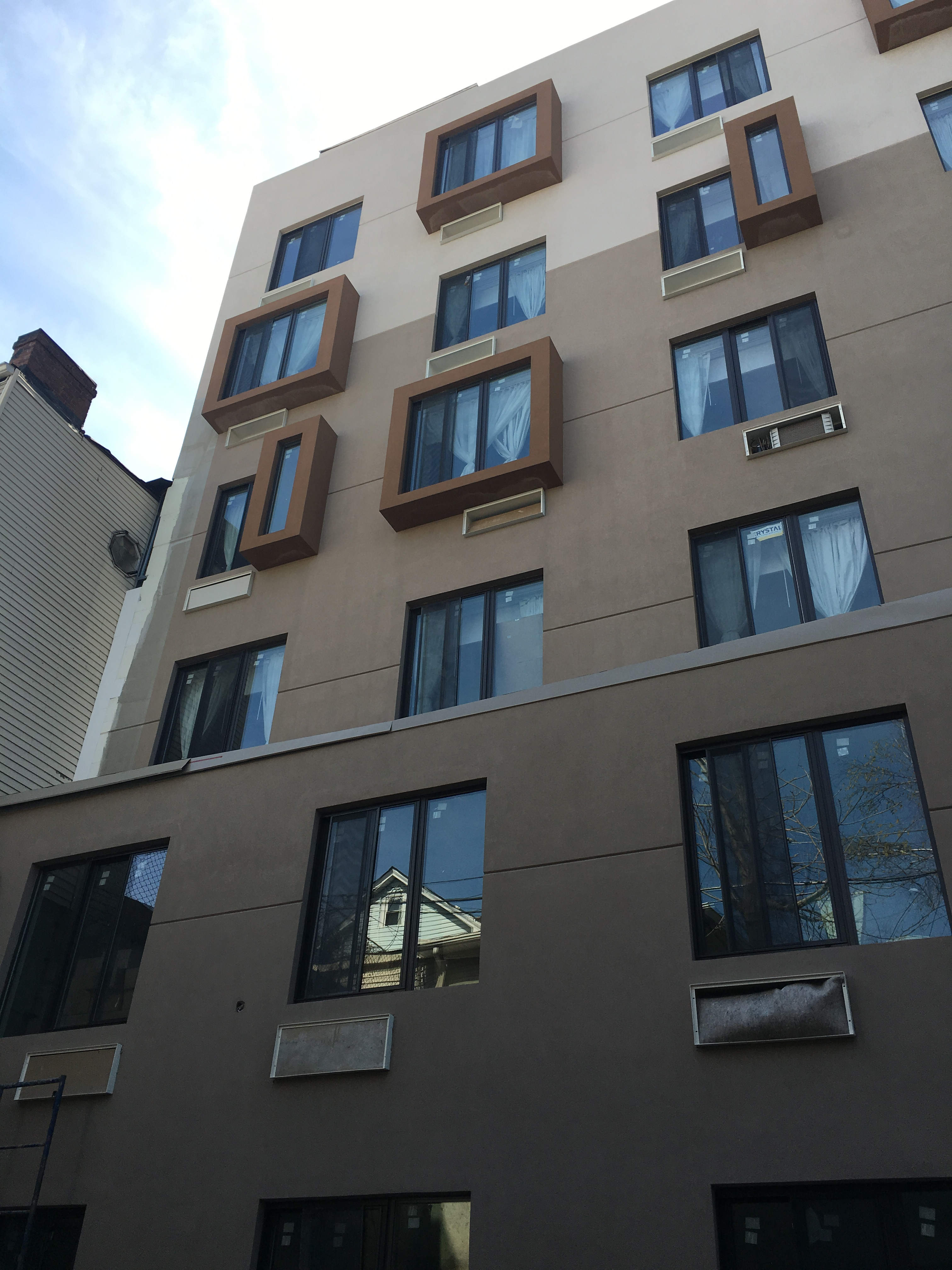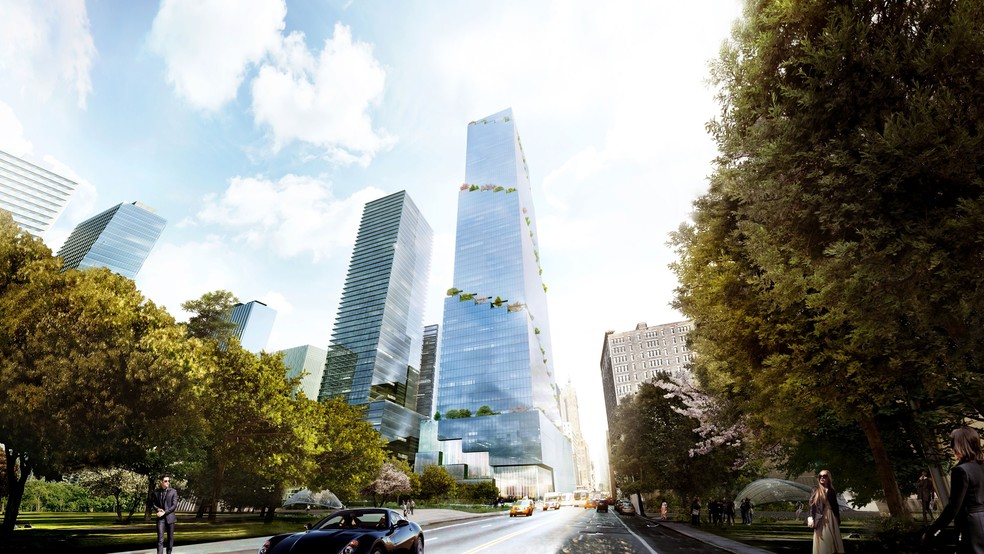New York Blvd, a vibrant and bustling urban artery, has long been a symbol of sophistication, culture, and opportunity in the heart of the Big Apple. This iconic thoroughfare is more than just a street; it is a melting pot of diversity, history, and modern innovation. Whether you're a local resident or a visitor exploring the city, New York Blvd offers a unique experience that encapsulates the essence of New York City.
As one of the most well-known streets in the world, New York Blvd plays a pivotal role in shaping the city's identity. From its bustling sidewalks to its towering skyscrapers, the boulevard is a testament to the city's dynamic character. This article will delve into the rich history, vibrant culture, and economic significance of New York Blvd, offering readers a comprehensive understanding of what makes this street so iconic.
For both residents and tourists alike, understanding the significance of New York Blvd is crucial. It is not just a place to visit but a destination that embodies the spirit of opportunity, innovation, and cultural diversity that New York City is known for. Join us as we explore the multifaceted aspects of this remarkable boulevard.
Read also:Understanding The Mesa Electoral 2024 A Comprehensive Guide
Table of Contents
- History of New York Blvd
- Location and Layout
- Cultural Significance of New York Blvd
- Economic Impact
- Key Landmarks
- Traffic and Transportation
- Life for Residents
- Tourism on New York Blvd
- Future Developments
- Conclusion
History of New York Blvd
New York Blvd has a storied past that dates back to the early days of the city's founding. Originally established as a trade route, the boulevard quickly became a central hub for commerce and culture. Over the years, it has evolved to reflect the changing needs and aspirations of New Yorkers.
Origins and Early Development
The origins of New York Blvd can be traced back to the 17th century when it served as a vital link between various neighborhoods. As the city grew, so did the importance of this street. By the 19th century, New York Blvd had become a bustling thoroughfare lined with businesses, residences, and cultural institutions.
20th Century Transformations
In the 20th century, New York Blvd underwent significant transformations. The construction of skyscrapers and the introduction of modern infrastructure marked a new era for the boulevard. This period saw the rise of iconic landmarks such as the Empire State Building and Times Square, both of which are located along or near New York Blvd.
Location and Layout
New York Blvd stretches through the heart of Manhattan, connecting major neighborhoods and serving as a gateway to various parts of the city. Its strategic location makes it a vital artery for both residents and visitors.
Key Intersections
Some of the most notable intersections along New York Blvd include:
- Times Square
- Grand Central Terminal
- Central Park South
Cultural Significance of New York Blvd
New York Blvd is a cultural hub that celebrates diversity and creativity. From art galleries to theaters, the boulevard offers a wide range of cultural experiences that cater to all tastes.
Read also:Tania Raymonde The Versatile Actress Who Continues To Captivate Audiences
Art and Entertainment
The boulevard is home to numerous art galleries, theaters, and performance venues. These spaces provide a platform for artists and performers to showcase their talents and contribute to the rich cultural tapestry of New York City.
Economic Impact
The economic significance of New York Blvd cannot be overstated. As a major commercial center, it generates billions of dollars in revenue annually, supporting thousands of jobs and businesses.
Business Opportunities
From multinational corporations to small businesses, New York Blvd offers a wealth of opportunities for entrepreneurs and investors. The street's vibrant economy is fueled by its strategic location, diverse customer base, and robust infrastructure.
Key Landmarks
New York Blvd is dotted with iconic landmarks that attract millions of visitors each year. These landmarks not only contribute to the city's tourism industry but also enhance the cultural and historical value of the boulevard.
Empire State Building
One of the most famous landmarks on New York Blvd is the Empire State Building. Standing at 102 stories, this skyscraper is a symbol of New York City's architectural prowess and engineering excellence.
Traffic and Transportation
Traffic management and transportation are critical aspects of maintaining the functionality of New York Blvd. The city has implemented various measures to ensure smooth traffic flow and efficient public transportation.
Public Transportation
New York Blvd is well-served by a network of subways, buses, and trains, making it easily accessible to residents and visitors alike. The Metropolitan Transportation Authority (MTA) plays a key role in managing public transportation along the boulevard.
Life for Residents
For those who call New York Blvd home, life is a unique blend of urban convenience and community spirit. Residents enjoy access to world-class amenities while being part of a vibrant and diverse community.
Community Events
The boulevard hosts numerous community events throughout the year, fostering a sense of belonging and camaraderie among residents. These events range from cultural festivals to charity drives, providing opportunities for people to connect and engage with one another.
Tourism on New York Blvd
New York Blvd is a major tourist attraction, drawing visitors from all over the world. Its rich history, vibrant culture, and iconic landmarks make it a must-visit destination for anyone exploring the city.
Visitor Attractions
Some of the top attractions on New York Blvd include:
- Times Square
- Central Park
- Museum of Modern Art (MoMA)
Future Developments
The future of New York Blvd looks promising, with plans for further development and enhancement. City officials and stakeholders are committed to ensuring that the boulevard remains a vibrant and dynamic part of New York City.
Sustainability Initiatives
In line with global trends, New York Blvd is embracing sustainability initiatives to reduce its carbon footprint and promote eco-friendly practices. These initiatives include the installation of solar panels, the use of energy-efficient lighting, and the promotion of green spaces.
Conclusion
New York Blvd is more than just a street; it is a symbol of the city's vibrant culture, economic prowess, and historical significance. From its rich past to its promising future, the boulevard continues to play a crucial role in shaping the identity of New York City.
We invite you to explore the many facets of New York Blvd and experience its unique charm for yourself. Whether you're a resident or a visitor, there is always something new to discover along this iconic thoroughfare. Share your thoughts and experiences in the comments below, and don't forget to explore our other articles for more insights into the world of urban living.


